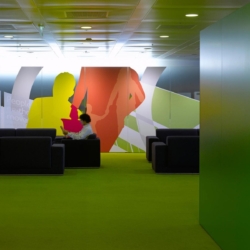To provide the best experiences, we use technologies like cookies to store and/or access device information. Consenting to these technologies will allow us to process data such as browsing behaviour or unique IDs on this site. Not consenting or withdrawing consent, may adversely affect certain features and functions.
The technical storage or access is strictly necessary for the legitimate purpose of enabling the use of a specific service explicitly requested by the subscriber or user, or for the sole purpose of carrying out the transmission of a communication over an electronic communications network.
The technical storage or access is necessary for the legitimate purpose of storing preferences that are not requested by the subscriber or user.
The technical storage or access that is used exclusively for statistical purposes.
The technical storage or access that is used exclusively for anonymous statistical purposes. Without a subpoena, voluntary compliance on the part of your Internet Service Provider, or additional records from a third party, information stored or retrieved for this purpose alone cannot usually be used to identify you.
The technical storage or access is required to create user profiles to send advertising, or to track the user on a website or across several websites for similar marketing purposes.
 With millions of people now working from home or furloughed, they may be wondering when they will be asked to return to the office, perhaps imagining what their office will look like on their return and feeling a little anxious about going back to their work space. A TUC survey issued 27 April 2020 confirmed that 39 percent of workers returning to the office are concerned about safe distancing from their colleagues. (more…)
With millions of people now working from home or furloughed, they may be wondering when they will be asked to return to the office, perhaps imagining what their office will look like on their return and feeling a little anxious about going back to their work space. A TUC survey issued 27 April 2020 confirmed that 39 percent of workers returning to the office are concerned about safe distancing from their colleagues. (more…)











 A report released by
A report released by 


 Organisations across Europe are facing a skills challenge caused by digital transformation, with many struggling to keep pace with learning and development (L&D) needs, claims research from
Organisations across Europe are facing a skills challenge caused by digital transformation, with many struggling to keep pace with learning and development (L&D) needs, claims research from 


















November 18, 2019
The agile workplace: try to catch the wind
by Neil Usher • Comment, Workplace design
(more…)